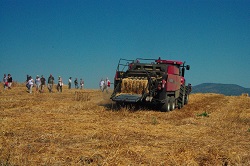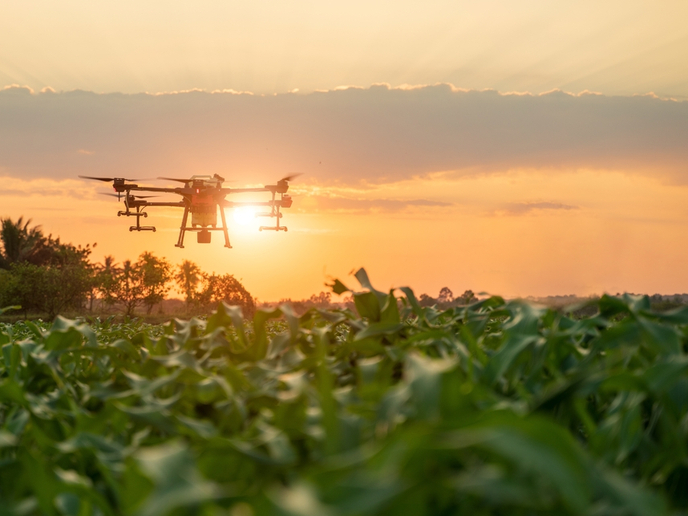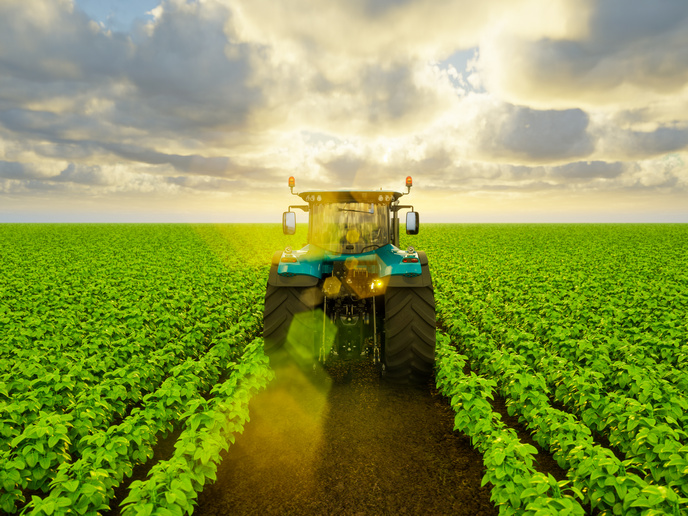Improving the logistics for European bioenergy crops
Renewable energy is often associated with wind turbines or solar panels but in fact biomass accounts for over 60 % of renewable energy produced in Europe. Plant matter or ‘lignocellulosic biomass’ is the most abundantly available raw material commonly used to produce heat and electricity. But according to Benoit Gabrielle, Professor in Environmental Biophysics at Paris-Saclay University and coordinator of the EU-funded LOGISTEC project, ‘unless the lignocellulosic biomass supply chain is managed in an economically, socially and environmentally sustainable manner, Europe will not be able to meet its ambitious renewable energy targets.’ Bioenergy production involves a chain of activities ranging from plant growth to the final energy conversion. ‘Optimising the various steps of the chain, from feedstock selection and management to transportation mode through harvesting, pre-treatment and storage, offers the potential to reduce costs and improve the sustainability of biomass supply,’ says Gabrielle. Each step can pose different challenges and LOGISTEC aimed to find improving technologies for all of the steps. ‘It also aimed at developing an holistic framework to optimise logistics from an economic perspective and to assess the sustainability of supply chains from an environmental and social standpoint,’ adds Gabrielle. Benchmarking current technologies LOGISTEC looked at all types of crops specifically grown as biomass, using specific meta-analyses, laboratory tests, field trials and ecosystem modelling to look at environmental impacts. It produced a set of benchmarks for commercial technologies. ‘The project pointed at the most efficient ones, improved some of those (for harvesting systems) or examined the feasibility of using them for the wide range of energy crops tested in the project’ explains Gabrielle. Project partners created a worldwide database of energy crops according to their biomass production potential and used a meta-analysis to rank the yields of candidate energy crops according to local conditions. ‘It is the first time such a data-base was put together, and a meta-analysis carried out. It confirmed that miscantus had the highest yield potential overall, compared to other candidate species for biomass production.’ says Gabrielle. Mathematical models developed by the team were also able to guide the selection of the best technology combinations within the supply chain for each type of feedstock or climatic zone, and to support the design of future biomass supply chains, conversion processes and products’ Testing new technologies One area the consortium studied was the potential of a thermal pre-treatment process to make biomass ‘denser' and easier to transport. Known as wet torrefaction (Torwash), the process also creates liquid residues that could be used as fertilisers. ‘This process produces a solid residue with a 4-fold higher energy density than bulk biomass, and very good properties for combustion, but unfortunately the nutrient-rich effluent sometimes depressed crop yields,’ says Gabrielle. He added that the residue can also be put through anaerobic digestion to create fertilizer instead. Gabrielle concludes that LOGISTEC has shown that all components of the logistics chains can be improved, and that chain optimisation pays off. ‘Storage emerged as the main bottleneck in the overall efficiency of the chains. New options to grow crops, for instance by mixing legumes and lignocellulosic species appeared very promising to save resources and reduce environmental impacts,’ he says. Densification technologies such as Torwash also appeared promising for large-scale applications. Some of the innovations developed through LOGISTEC have already been commercialised via the companies participating in the project, including improved harvesting systems, densification via briquetting, or real-time monitoring of biomass flows and stocks. Longer-term developments include the production of logistics optmisation software to support decision making in biomass production management, for any location or crop.
Keywords
LOGISTEC, Energy crops, Biomass, Miscanthus x giganteus, supply chain management, crop yields, bioenergy, bioeconomy, biorefinery.







